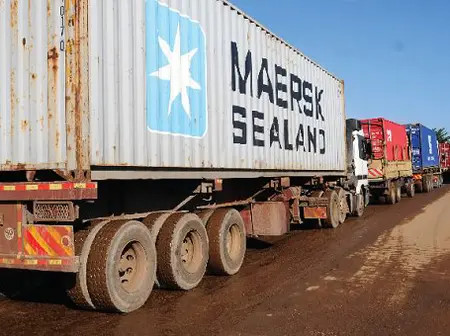Kenyan shipments to Kigali fell sharply in the second quarter of 2025, according to the National Institute of Statistics of Rwanda (NISR), with the value of imported goods between April and June dropping to US$ 78.2 million from US$ 245.1 million a year earlier; a decline of more than 68%.
“In the second quarter of 2025, Rwanda’s imports from the EAC Partner States totaled US$ 325.48 million; representing 94.53% of its total trade with the EAC. In this quarter, imports from Tanzania accounted for 54.98% of total imports from EAC partner states, while imports from Kenya constituted 24.02%,” the data stated.
Rwanda’s overall imports slid nearly 21% from a year earlier, totaling US$ 1.25 billion in the second quarter of 2025, reflecting weaker demand. In Q2 2025, the East African country mainly imported machinery and transport equipment, followed by food and live animals, manufactured goods by material, mineral fuels and lubricants, and chemicals.
Rwanda’s domestic exports also shrank, plunging 36% year-on-year to US$ 346 million, while re-exports — largely goods transshipped to the Democratic Republic of Congo — fell 13% to US$ 142.41 million.
In the second quarter of 2025, Rwanda’s domestic exports were led by the United Arab Emirates with US$ 97.9 million in shipments, nearly a third of Rwanda’s total value. The Democratic Republic of Congo (DRC) followed with US$69.9 million, while China, Belgium, and Luxembourg rounded out the top five.
Despite the trade declines, Rwanda managed to narrow its trade deficit with the Common Market for Eastern and Southern Africa (COMESA), registering a rare surplus of US$32 million. Trade with its closer bloc, the Communauté Économique des Pays des Grands Lacs also produced a surplus of US$ 190 million, driven by exports and re-exports to the DRC and Burundi.
However, Rwanda ran trade deficits with the European Union (US$ 39 million) and the Southern African Development Community (US$ 16 million), highlighting its mega-dependence on Asian and regional suppliers for crucial goods.
Exports to Kenya from Rwanda remain negligible compared to flows to Uganda and Burundi, cementing Nairobi’s role as a supplier rather than a reciprocal market.

Leave a Reply